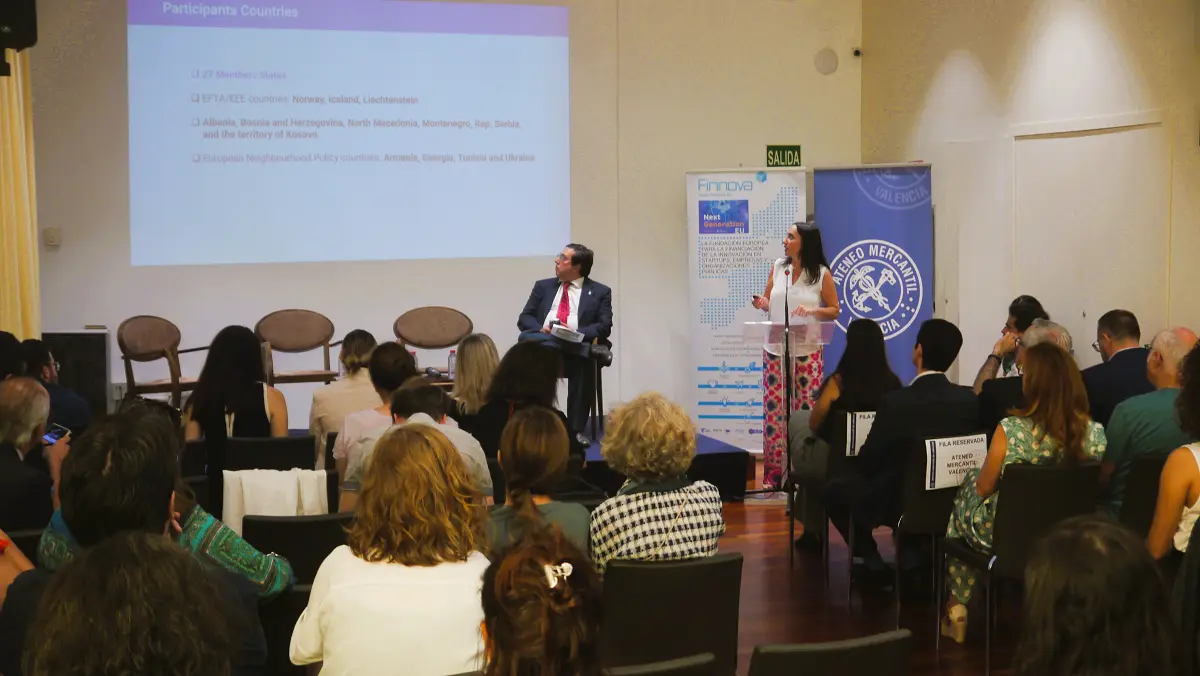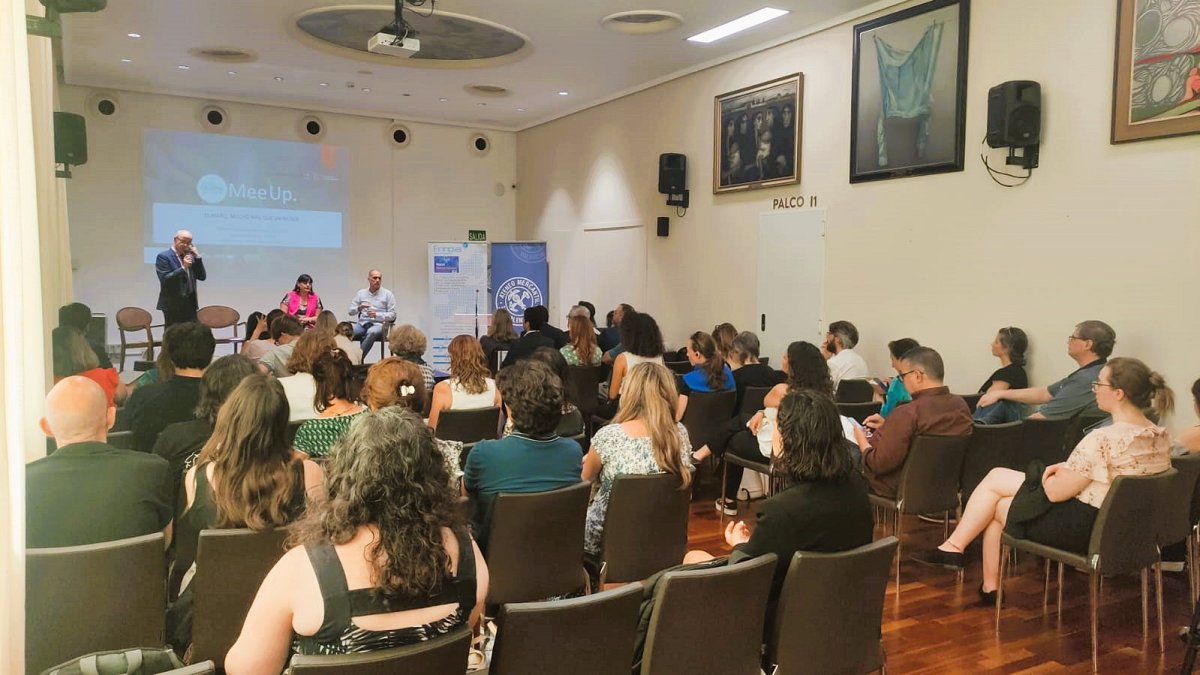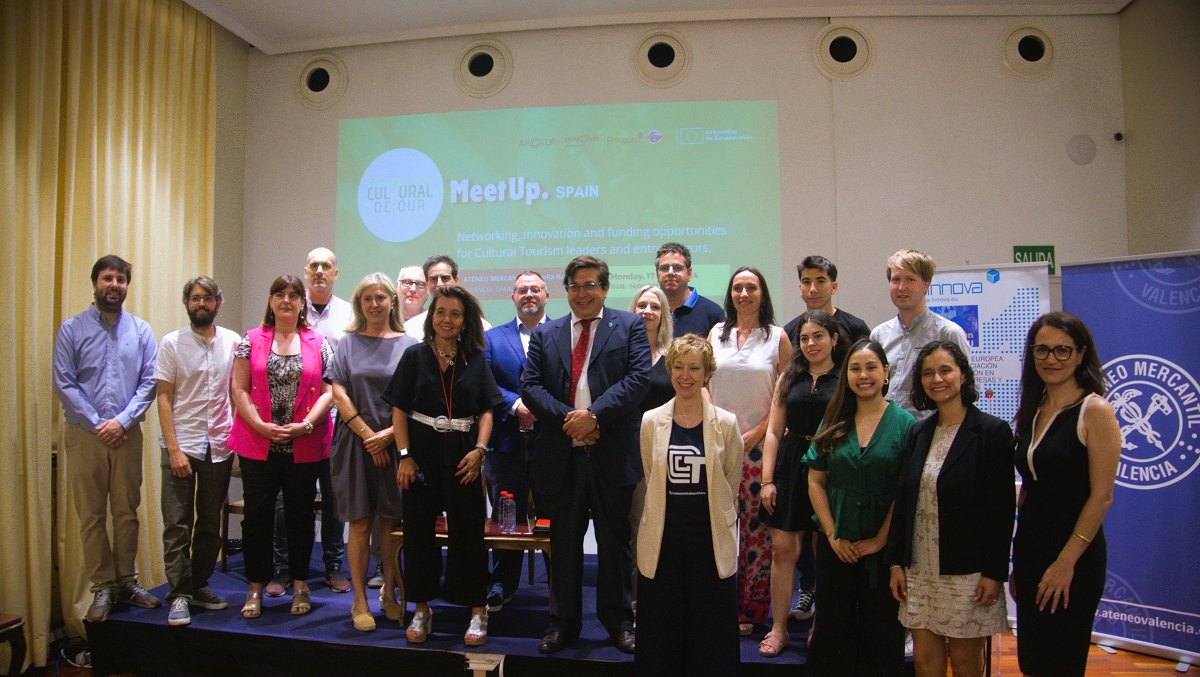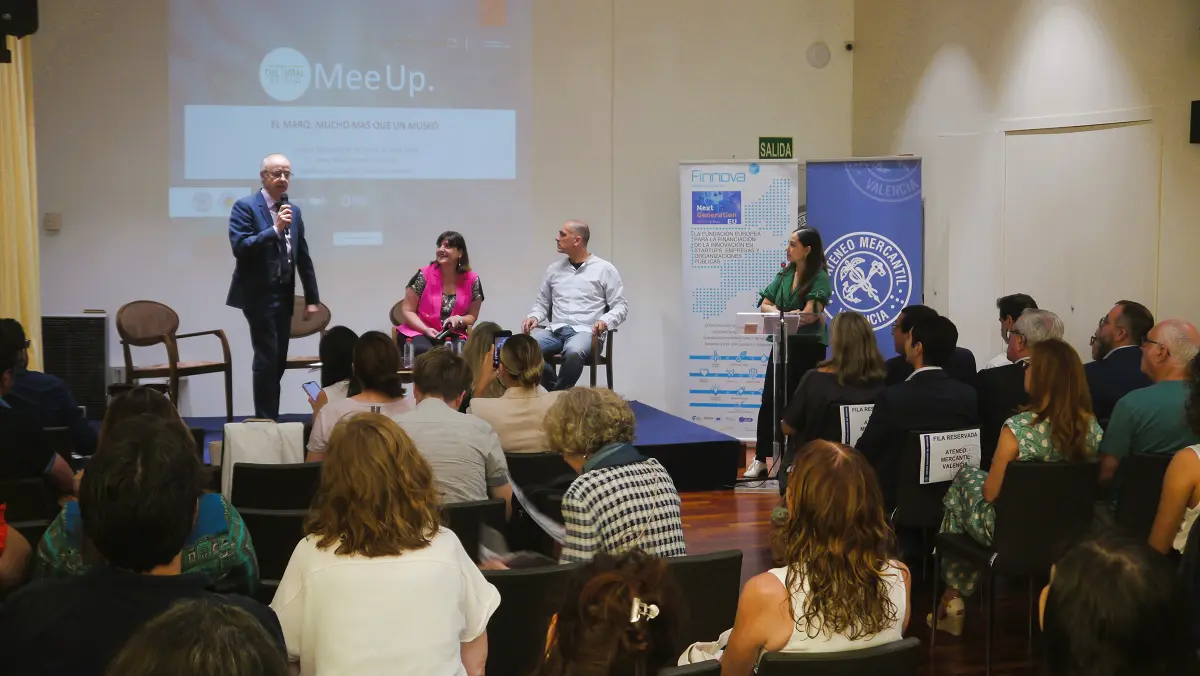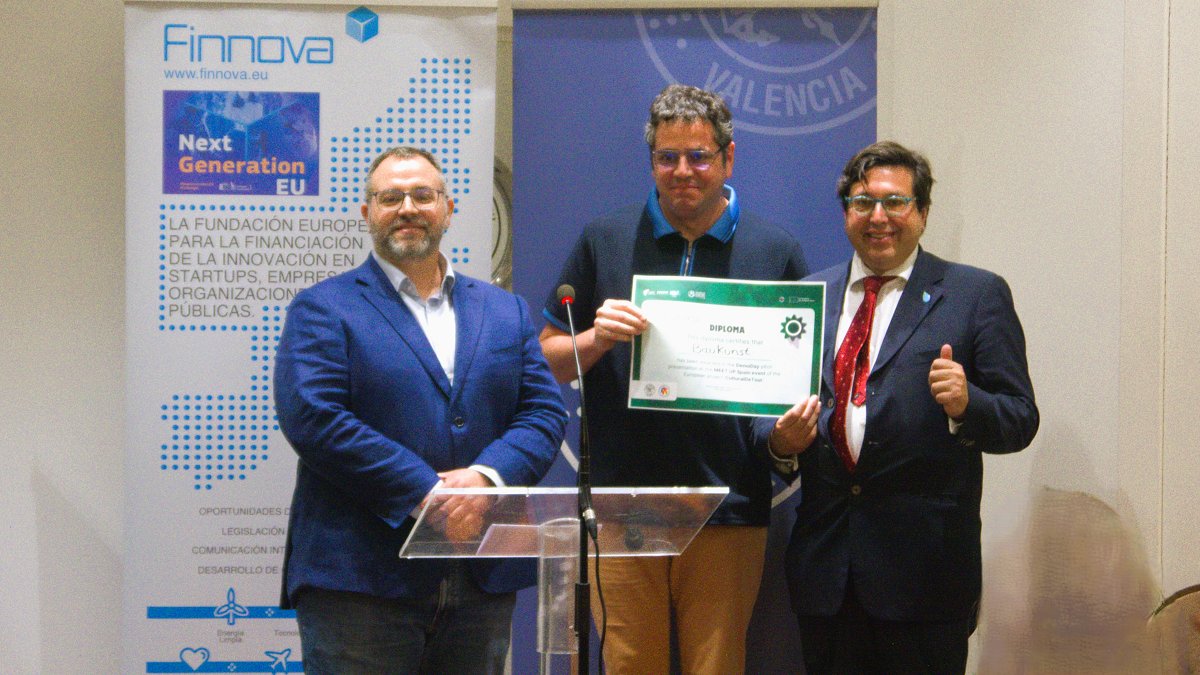BAUKUNST: Innovation and technology to preserve Europe's cultural heritage
21 Nov 2024
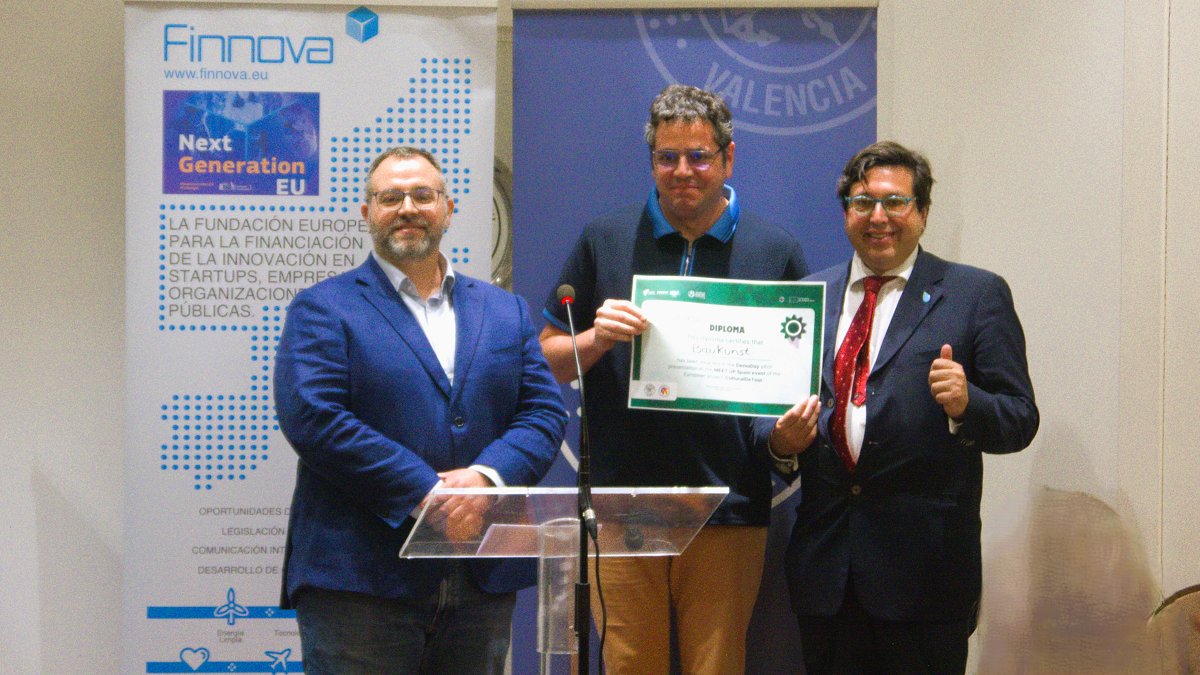
The Valencian startup shines at the CulturalDeTour DemoDay, setting the standard for sustainable and digitised cultural tourism.
In a world where sustainability and digital transformation are at the forefront of cultural development, the European project CulturalDeTour, funded by the Creative Europe Programme, has achieved a milestone in 2024 with the successful conclusion of its Acceleration Programme. This initiative was designed to empower sustainable cultural tourism businesses in Greece, Slovenia, and Spain, equipping them with innovative tools and strategic knowledge to revolutionise the management, promotion, and preservation of cultural tourism sector.
Among the 30 participating teams, the Valencian startup Baukunst stood out as a prime example of innovation in the cultural sector. Their pioneering work in the digitisation of cultural heritage earned them recognition from the jury at the CulturalDeTour DemoDay, establishing the company as a leader in the digital preservation of Europe’s historical legacy.
An Acceleration Programme Driving Cultural Transformation
The CulturalDeTour Acceleration Programme provided participants with the opportunity to delve into emerging trends in cultural tourism, explore innovative business models, and enhance their practices in sustainability, digitisation, and advanced technology use. This was achieved through the Earth-Centred Design methodology, which promotes an integrative approach aligned with preservation and environmental respect.
The DemoDay, held as the programme's grand finale, brought together 11 selected participants to present their entrepreneurial ideas to an international panel of experts. The panel featured prominent figures such as Urška Jež, CEO of Transformation Lighthouse d.o.o.; Ralph Michaud, COO of Star Startups; Maria Anagnostopoulos, COO of Envolve Entrepreneurship; Vicente Gomar, delegate from the Ateneo Mercantil’s Club Innovación y Empresa; and Juan Mª Sánchez Villar, Managing Director of Calma Ventures and Associate Professor at the University of Valencia.
Each juror assessed the proposals based on criteria such as sustainability, innovation, and potential impact. Baukunst emerged as the standout company, thanks to its disruptive approach to cultural heritage management through digitisation.
Baukunst: Driving Innovation in Heritage Preservation
Founded by Adolfo Ibáñez, Baukunst was established to address the pressing challenges facing monuments and historic sites in Spain. Their focus on digitisation as a preservation tool has proven not only feasible but also essential in a context where physical decay and insufficient documentation threaten invaluable cultural assets.
Using advanced technologies such as 3D scanning, photogrammetry, and augmented reality, Baukunst creates precise and accessible digital replicas. These replicas enable the digital preservation of fragile heritage elements, facilitate more efficient management by public institutions, and promote access to cultural content through digital platforms.
According to its founder, “Digitising heritage is not only a tool for preservation but also a means to make it accessible to future generations, ensuring its continued appreciation over time.”
To gain a deeper understanding of Baukunst’s vision and the impact of the acceleration programme on its development, we spoke with founder Adolfo Ibáñez:
- What was the main challenge Baukunst faced in digitising cultural heritage, and how did you overcome it?
“The biggest challenge was the lack of existing graphical information about many heritage sites and artefacts, compounded by the limited resources typically available to cultural institutions for digital preservation. Many sites lack detailed documentation, and the fragile nature of some artefacts necessitates non-invasive techniques.
We addressed these challenges by employing advanced 3D scanning, photogrammetry, and augmented reality technologies. These tools enabled us to capture precise digital representations without compromising the integrity of the artefacts. Collaborating with institutions and implementing cost-effective, innovative solutions allowed us to bridge the gap in graphical data and make high-quality digital heritage accessible.”
- How do you see digitisation shaping heritage sustainability over the next decade?
“Digitisation will be pivotal in making cultural heritage preservation more resilient and engaging for future generations. High-quality digital replicas will help institutions safeguard records against risks like natural decay and climate change. Moreover, augmented and virtual reality technologies will bring heritage to global audiences, reducing wear on physical sites.
We envision a future where heritage can generate sustainable revenue through virtual experiences, digital souvenirs, and even NFTs. This approach will fund preservation efforts and foster a more inclusive, sustainable cultural heritage sector.”
- What role did the CulturalDeTour project play in Baukunst’s development?
“The partnership with Arctur, a Slovenian leader in high-performance computing and tourism innovation, was transformative. Leveraging their technological expertise enabled us to enhance our 3D visualisation and augmented reality capabilities. This collaboration has positioned Baukunst as a key player in Europe’s digital heritage sector and opened the door to future innovations and partnerships.”
- What advice would you give SMEs integrating digitisation into their cultural business models?
“Start with a clear vision of how digital transformation aligns with your mission. Focus on small, impactful projects like virtual tours or digital replicas to demonstrate value. Collaborate with technology partners to access expertise and resources, and ensure sustainability by using eco-friendly solutions and open-access platforms.”
Baukunst exemplifies how SMEs can lead significant change in cultural tourism by embracing technology as a strategic ally. The startup has shown that digitisation is not only a solution to safeguard at-risk cultural elements but also a way to adapt heritage to modern demands while preserving its essence.
With initiatives like CulturalDeTour, Europe continues to champion cultural tourism that integrates innovation, sustainability, and preservation, fostering transnational cooperation and strengthening enterprises dedicated to a more inclusive and digital future.
From Valencia, Baukunst stands as a success story and an inspiration for businesses aiming to transform the cultural sector with purpose and vision.
